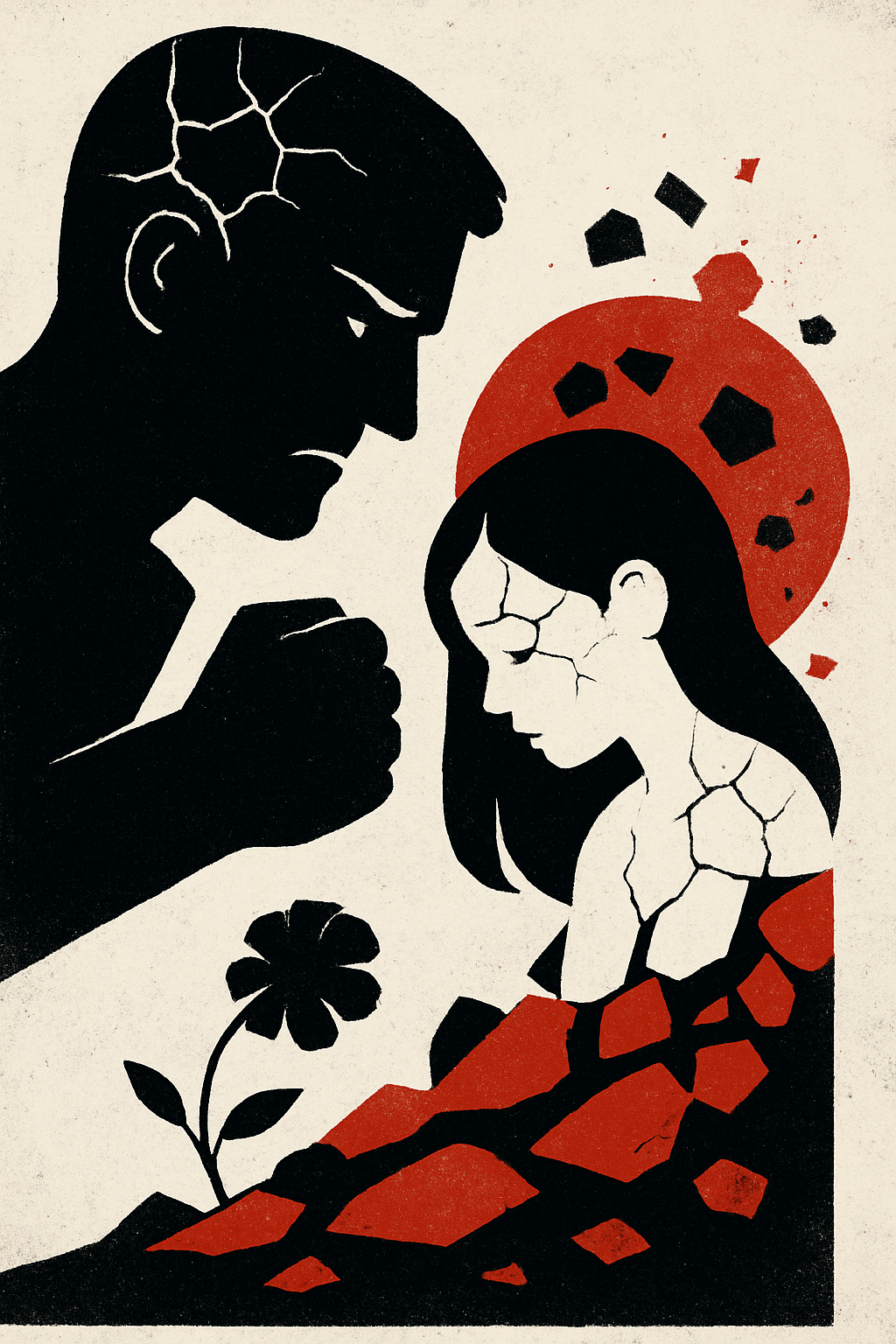The tragedy affects two families: a former boyfriend confesses to the murder of a 14-year-old girl.
This article is based on real facts, all temporal, geographical and nominal references have been deliberately omitted out of respect for the people involved in the drama.
A young girl was brutally killed with stones. Her body was found in an abandoned building, hidden under a closet and debris. The cause of death was a severe cerebral haemorrhage.
After participating in the search together with the victim’s family, the alleged perpetrator was questioned by authorities. Cornered by the evidence, he confessed to the murder, claiming he acted because the girl had ended their relationship.
Their relationship began when the victim was only 12 years old. Her mother had already expressed concerns about the young man’s behaviour, especially after the girl decided to break off the relationship following an episode of physical violence.
This story, beyond its inherent horror, exposes deeply rooted psychological and social dynamics that deserve serious reflection. It is a case of femicide that must not be considered an isolated event, but rather the acute symptom of a collective pathology involving family structures, education, affective culture, and social justice.
The young perpetrator emerges as a disturbed and potentially possessive figure, incapable of handling rejection and emotional detachment. His confession – that he killed her because she left him – reveals a mindset that turns affection into control, and relationships into possession. This is often the result of a dysfunctional emotional education, where male identity is built on strength, domination, and the denial of emotional vulnerability. It reflects a patriarchal and sexist culture in which rejection is seen as humiliation, to be avenged through violence. The lack of healthy relational models — in a context where media often romanticize jealousy, control, and violence — reinforces this toxic drift.
The victim, little more than a child, is doubly victimised: first by the brutal act of her ex-boyfriend, and secondly by a society that failed her long before the final tragedy. She was just a child when the relationship began — too young to fully comprehend the risks, dynamics, and boundaries of an emotional connection. Her freedom had already been violated well before the final, fatal act.
The concerns previously expressed by her family reveal an awareness that, while present, may have been powerless. This raises difficult questions: were those concerns ever acknowledged by the appropriate authorities? What was the social environment around the girl? To what extent was she supervised, protected, guided? Many peripheral or underserved communities suffer from a vacuum of education and support — single-parent households, weak school systems, institutions that are absent or slow to act. This tragedy also stems from a systemic loneliness.
The perpetrator’s active participation in the search is, sadly, not uncommon in such cases. It reveals either a form of psychological dissociation or a disturbing manipulative coldness. Not only did he commit the crime, but he tried to shape the narrative of the disappearance — standing beside the family in a macabre display of deceit and calculation. It is the triumph of a mind disconnected from empathy and accountability.
This is not a “crime of passion”, as sensationalist media sometimes portray it. This is femicide: the killing of a girl because she dared to assert her autonomy — her right to say “no”. What happened is the result of a culture of domination, a structural lack of emotional education, and a system that does not adequately protect minors and young women.
This loss cries out not only for justice, but for reform. We need educational change, with affectivity and respect programs introduced early in schools. We need legal change, to monitor and intervene in inappropriate relationships. We need cultural change, to dismantle the myth of possessive love and the dominant male. True collective mourning must include recognition of the social void that allowed this to happen.
To prevent tragedies like this and to systematically combat femicide and gender-based violence, deep cultural changes are essential — involving schools, families, media, and institutions.
If you or someone you know is involved in an abusive or suspicious relationship, it’s important to speak out. There are anti-violence centers, listening services, and toll-free helplines that can offer support. Silence, in these situations, is violence’s greatest ally.


Leave a Reply